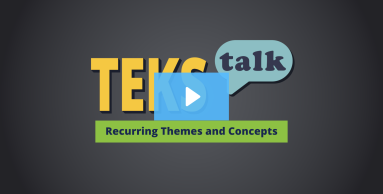
Knowledge and Skills Statement
Research
National Research Council. 2021. A Framework for K-12 Science Education: Practices, Crosscutting Concepts, and Core Ideas. Washington: The National Academies Press. https://doi.org/10.17226/13165.
Summary: A Framework for K-12 Science Education describes the crosscutting concepts (called recurring themes and concepts in Texas) that expand across multiple science disciplines. These themes help students understand the connections among the K-12 science concepts. These concepts are applied in science and engineering and provide students with a better conceptual understanding of both fields.
Research
"National Science Teachers Association. 2013. Appendix G: Crosscutting Concepts in Next Generation Science Standards. (April 2013):1-17
https://www.nextgenscience.org/sites/default/files/Appendix%20G%20-%20Crosscutting%20Concepts%20FINAL%20edited%204.10.13.pdf."
Summary: This article describes the concepts students should be taught in early childhood to help build a science and engineering foundation. These foundational concepts will allow students to build on their knowledge as they progress through their academic careers as these concepts increase in complexity throughout the upper-grade levels. It explains the importance of repetition when introducing these concepts.
